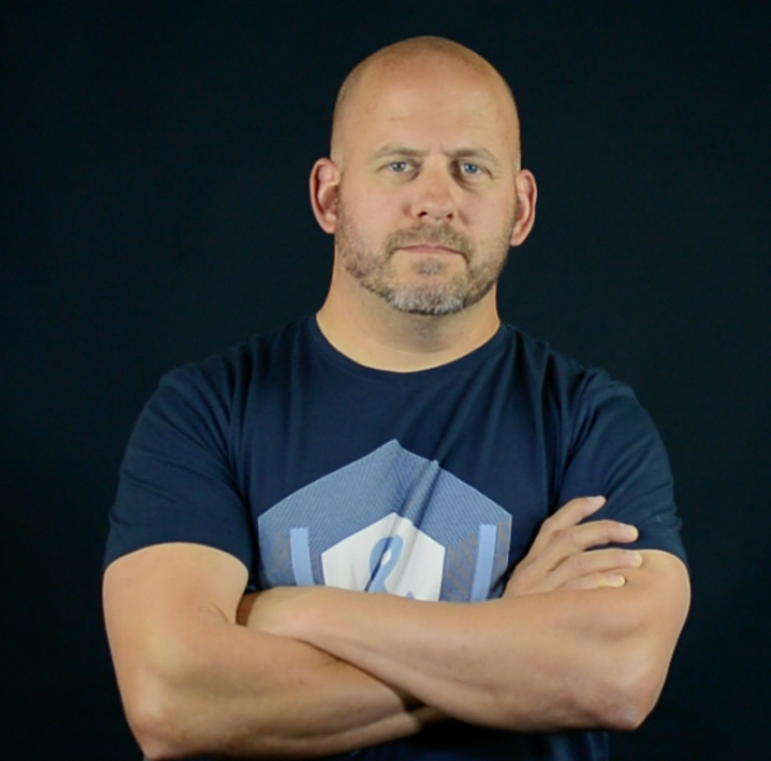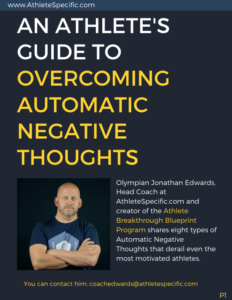I was saddened today to hear of the recent news of former NFL athlete Phillip Adams who killed his doctor and four other people before taking his own life.
Whenever I first read a headline like this, I immediately think of many of the lessons I was never taught about what I’m going to talk about in this blog post. Athletes need to be prepared for life THROUGH sport. Not to be thrown into life after sport. Athletes are treated like military veterans returning to civilian life after sport as though they are two distinct worlds, which is where I believe the problems begin.
This article is a few years in the making. I have often thought about writing it but have held off for some reason. Probably because it’s going to be epic. Today seems to be the catalyst to get this information out there once and for all. It is not to be read at the end of one’s career but the beginning. It’s not just for athletes, but for parents and coaches too.
We must “begin with the end in mind,” as Stephen Covey once said.
In this two-part blog post, I’ll do my best to talk about some concepts that no one ever really talks about.
The Goal: Success In Life, Not Just In Sport
Society, generally, puts athletes on pedestals—big ones. We marvel at World Records and other inspiring performances. We get inspired by athletes who go big or go long, pushing the boundaries of human understanding.
Many will marvel at the paychecks that athletes receive. Although they can be fleeting…careers can be cut short.
Corporations pay big dollars to apply inspiring examples of achievements in sports to help improve their bottom line. But with just a bit of research, you can see a laundry list of athletes whose careers burned bright but then flamed out. Indeed, no one wants to flame out. I tell all of my athletes that your goal is not to “make the Olympics” or to “go pro” but “to have a long, successful career in your sport, and beyond.”
Life Is Harder Than Sport
The first mistake many athletes make is not understanding that life, in general, is more complex than sport. This is what I believe is the primary driver of athletes failing in life after sport. A misunderstanding that what they are currently doing is more complicated and will therefore make everything else in life seem dull by comparison.
This isn’t true.
For aspiring athletes, they are immediately thrown into a planned and organized regime from day one. Show up at this time. Eat at this time. Go to sleep at this time. Wake up at that time.
Here are the clothes you need to wear. You’re going to face this team on Saturday. Have that competition on Sunday. We fly to Europe on Monday, etc.
The young athlete never has to develop a sense of organization and command over their domain outside the field of play because it’s all organized for them. Success in the sport itself is all about pattern recognition. Routine. Tradition. It’s all very formulaic. Most of life is not.
When sport is over, the order and consistency an athlete is used to are gone. The complexity of life is now apparent. No longer is there a coach or a schedule. Hopefully, there is something like school or a career to help guide and put some boundaries up. This is not like changing teams, however. It’s more like moving from one country to another with a completely different culture. The difference can be hard to manage.
What can set an athlete up for failure is often a non-athletes approach to what they are doing. To non-athletes being an athlete looks and seems exciting! Most people would trade their life for that of an athlete in a heartbeat. And when you’re that athlete, that’s exciting and encouraging. Even if an athlete never stands on a podium, they are placed on a pedestal by fans and non-fans alike.
Being an athlete is exciting. You are in the best shape of your life. Hopefully, you’re making money, but many athletes don’t. You’re around a culture of people fighting for the same thing, which can empower and energize. It can, in fact, shelter an athlete from life in general, but they need that control over their environment to be successful.
Once the environment changes, athletes are bombarded by new inputs that weren’t there in the old athletic environment, and the ability to control those inputs hasn’t been developed fully. Problems can arise.
Sport Is Their First “Challenge”
In my book “An Athlete’s Guide To Winning In Sports and Life,” I talk about how the best athletes in any sport are the ones who can withstand the most challenges and take advantage of the most opportunities. This approach is critical. If you can’t withstand the challenges of sport, you fail. Likewise, if you cannot take advantage of the opportunities that come your way, you will also fail.
While athletes need to be fully immersed, obsessed, and committed to their sport to succeed, a constant reminder would be helpful. That reminder is this idea that while you are learning all you can to overcome this sporting “challenge,” you learn valuable skills to overcome challenges later in life.
This idea may seem obvious, but to an athlete, it’s not. It registers as a “Yeah. Yeah. That’s nice. What’s there to eat?”
The irony is that as adults, we see all of the lessons. Lessons like goal setting and perseverance. They are overcoming adversity. It seems obvious, but athletes aren’t thinking like that. They are thinking that they have a competition this weekend against their top rival and it’s going to rain. The lessons become compartmentalized and only applicable to sport. While they can apply those lessons within the sport, they lose track of using them outside of sport.
The Neurochemical Cocktail of Sport
Sport is one big flow trigger, and flow feels good. Whether you are an athlete in sport or an athlete in life, flow…feels…good.
And anything that feels good is addictive. Sport, therefore, is addictive.
Imagine taking a drug away from an addict. The body craves the feeling the drug gives them, so the brain then puts them on a quest to find something, anything that will make the body feel the way it used to feel. In the world of sport, this leads to athletes who don’t want to leave the mark. I always laugh when I hear sports pundits who discuss athletes who should retire. Often the conversation is about declining performance on the field of play. It is NEVER about the reality of the neurochemical addiction the athlete is facing. Sometimes the body can say to the athlete, “I’m done. This hurts. Let’s go play golf.” For many athletes who get cut or forced to stop due to injury, the body is saying, “Um…yeah…missing all those neurochemicals!!!”
If an athlete drinks or drugs while they are competing (Hey, it happens.) The athlete gives the body even MORE flow than just what the “high” of competition gives them. It’s artificial, but it’s a problem. When you take the sport away for any reason, the athlete can stay with the drugs or the drinking and often add to it to replace the feelings of flow sport used to give them.
All this is fine if you can wake up the next day and roll into practice and maintain your sport on the team, but if the team is gone…that athlete can get lost fast.
When Athletes Are In Pain
It’s here I should also talk about athletes who are in pain, physically. As athletes, we give our bodies to our sport. To achieve elite performance, you are constantly pushing the challenge/skill matrix. The brain rewards the body with neurochemicals, primarily dopamine when pushing just beyond our skill level. This is true for an Olympian, and it’s also true for an athlete who is ten years old.
When you are in that flow-triggered space, accidents happen. And the body pays.
One of my favorite athletes blew out their knee on a landing only to then careen down a hill. They “tomahawked” themself over and over and over again, and the knee, already blown out, proceeded to blow out EVERY ligament. Only one was left. The bottom half of their leg was held on by that one ligament and their skin.
Pain killers would be prescribed by 99% of all doctors in this case, but the athlete refused based on his belief that the body has an incredible ability to heal. And it does. But for many athletes with far less severe injuries would be prescribed pain medication to numb the pain. This can cause interference in the body’s ability to heal but, more importantly, the brain’s ability to regulate pain. We are all aware of the problems painkillers can create, and many athletes are in a lot of pain after their careers end.
In addition to the blanket of pain-meds, this physical pain can add to the complexity of life. It can cause depression. It can block the brain’s ability to learn how to regulate pain. And in my experience, it can cause athletes to be just plain…confused. They are confused about themselves, their body, and life. As well as their relationships with themself and others.
For athletes who have been on pain meds for a long time, the act of weaning off them can be more complicated than someone addicted to a street drug. It’s not an easy road to navigate, and trained professionals need to be involved every step of the way.
I will share here that what I have learned many years after my sporting career ended is that there are many ways to solve this issue on an individual basis. One only needs to be diligent and find what works for them. It may be difficult, but it’s doable. It’s always possible.
Not Understanding That Sport Is What They Do and Not Who They Are
For many athletes, their sport is their identity. It’s who they are.
But that approach is a flawed one, as we know. If what you do is who you are, then what happens when you’re done doing that thing?
For athletes, immersion, and obsession lead to greatness. The brain rewards the entire path with dopamine. While the journey comes with its ups and downs, pains, and pleasures, overall, it’s an enjoyable experience. They have to be obsessed.
And if you don’t like the word “obsession,” how about, we use “passion.” Because describing someone passionate and obsessed is the same thing, it usually depends on who is defining the person who is either obsessed or passionate.
Obsession is a skill, in my opinion. You can develop an obsession just like you can develop a passion. You can cultivate it. So that means you can then take that skill and apply it elsewhere. I think it was Dr. Gabor Mate who once said that if you’re addicted to one thing, that means you can take that and be addicted to something else. You can replicate it for good or for evil—your choice.
For athletes, they must understand that this sporting challenge is just one challenge of many that they will deliberately take on in their life. The challenge is that many start a sport when they are too young to understand what that means. At some point, sport goes from fun to serious. Then once it is over, they are lost. Unable to identify with who they are and what they will do next.
What they are then is not an athlete, but what I call a “Challenge Master.” Someone who takes on a challenge and figures out how to win no matter what is in front of them. THAT is the real lesson we want our athletes to come away with whether they win or lose. Their identity then is not tied to the sport; it’s connected to overcoming challenges, and as we all know, life is just a series of challenges to be overcome.
Part 2 to come shortly…

Olympian Jonathan Edwards
Founder - The Athlete Breakthrough Blueprint
Olympian Jonathan Edwards is the Creator of "The Athlete Breakthrough Blueprint": The world's only mental performance training program for aspiring athletes with big dreams. Over nineteen years he has worked with athletes who have gone on to or competed in NCAA D1, D2, D3, MCLA D1 and D2, the Olympics, NHL, MLL, NLL, NFL, and others. Feel free to link to this article from your blog and share it with an athlete, parent, or coach who would benefit from these concepts.
Do You Have An Athlete With Big Dreams?
I work with athletes in a variety of sports to help them get from where they are to where they want to be. Click here to learn about how to work with the #1 Mental Performance Coaching program for aspiring athletes.

